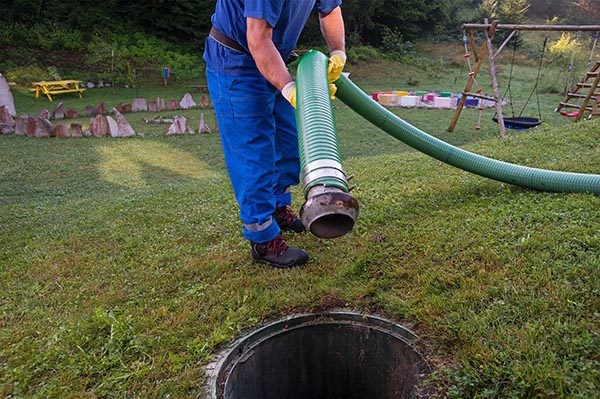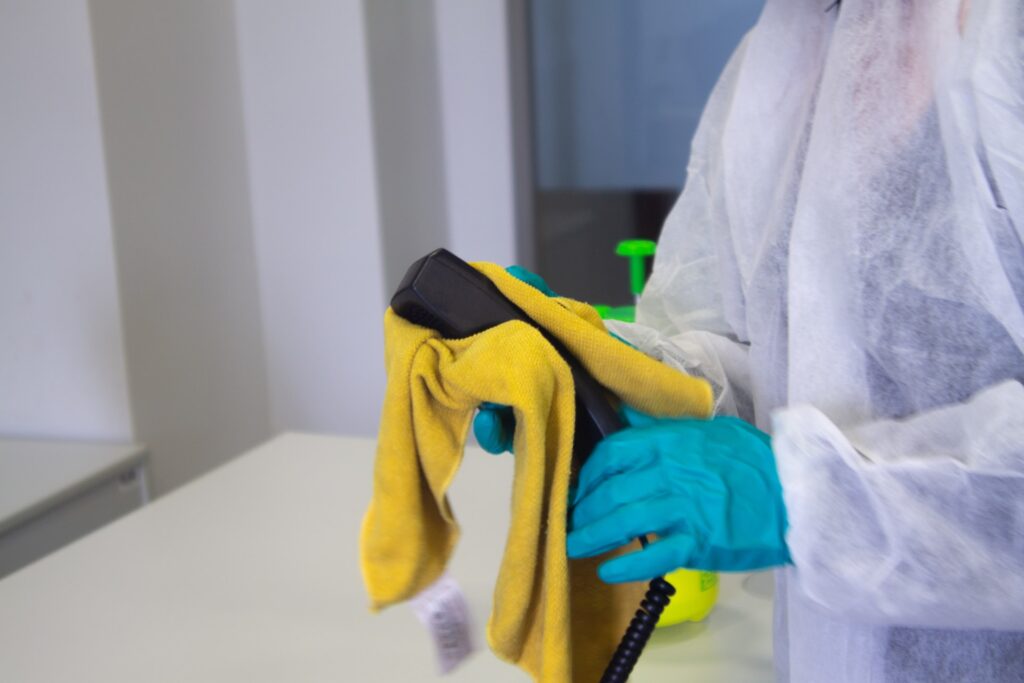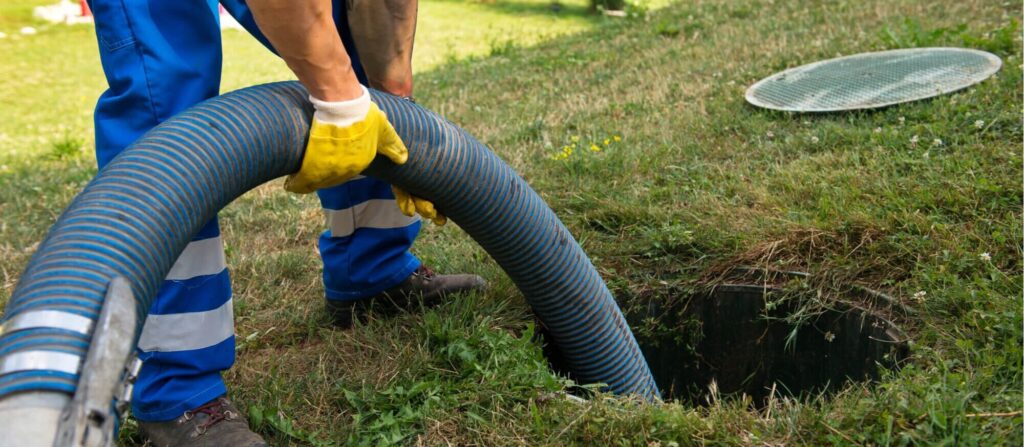A septic tank is an important part of a septic system in a home or other building. It holds and cleans the water that comes from the bathroom, kitchen, and laundry. But, like any other system, it needs to be taken care of regularly to make sure it works well. One of the most important things to know about taking care of a septic tank is how often it needs to be emptied. In this blog post, we’ll talk about the things that affect how often a septic tank in New Zealand needs to be emptied.
How Often Should A Septic Tank Be Cleaned?
On average a septic tank should be cleaned every three to five years, however, this may vary depending on usage, water conservation efforts and sludge buildup. It’s important to have your septic tank inspected by a professional to determine the appropriate cleaning schedule. The cost can depend on a range of factors mentioned in our pricing of septic tank cleaning article.
Factors That Affect How Often A Septic Tank Should Be Cleaned
Size Of Tank and Number Of Users
First, it’s important to know that the size of the tank and the number of people who use it affect how often the tank needs to be emptied. If fewer people are using a larger tank, it will need to be emptied less often than if more people are using a smaller tank. The Ministry of Health in New Zealand says that a septic tank should be cleaned out at least once every three years. But this is just a general rule that might not work in every situation.
Amount Of Solids Being Sent To Tank
The amount of solids going into the septic tank is one of the most important things that determines how often it needs to be emptied. Solids like food scraps and other things that don’t break down quickly can quickly fill up a septic tank and make it stop working. If your tank seems to be filling up faster than usual, you should have it emptied sooner than the recommended three years.
Surrounding Soil
The type of soil around the septic tank is another thing that can affect how often it needs to be emptied. If the soil doesn’t let water through, like clay soil, it can be hard for the water to soak back into the ground. This can make the tank fill up faster and need to be emptied more often.
Leach Field
Also, if you have a septic tank with a leach field, you should have the leach field checked at least once every three years. A leach field is a network of trenches or pipes used to move waste water from the tank into the soil around it. If the leach field isn’t working right, it can cause the tank to fill up faster and need to be emptied more often.
It’s important to have your septic tank checked and emptied regularly so that it works well and you don’t have to pay for expensive repairs or replacements. The New Zealand Ministry of Health recommends emptying a septic tank at least once every three years, but this can vary depending on the size of the tank, the number of people who use it, the amount of solids that go into the tank, and the type of soil surrounding the tank.
A professional inspection of your septic tank every few years is also a good idea. A professional will be able to spot any problems and give advice on how often the tank should be emptied. It’s also important to be careful about what you put in the septic tank. For example, you should avoid putting anything that doesn’t break down in the system and make sure to clean the house regularly.
Septic Tank Maintenance Guidelines
The way a septic tank works is based on its ability to hold water long enough for solids, fats, and oils to settle. The tank is split into two main sections. The first section is where the solids, fats, and oils settle. The second section is where the partially treated water goes out into the drain field.
Most septic tanks work by letting the heavier solids sink to the bottom of the tank and the lighter fats and oils float to the top. The sludge at the bottom of the tank can be made of different things, like human waste, toilet paper, and other organic matter. Some of the waste in septic tanks needs to be broken down by the right kind of flora (called “good bacteria”). Good bacteria are a big part of how a septic tank works. They break down the solids, fats, and oils in the tank, which cuts down on the amount of sludge.
Some sludge at the bottom of your septic tank is necessary to keep the good bacteria alive. However, if there is too much sludge in your septic tank, it will reduce the amount of time that wastewater can be held. This means that wastewater won’t be treated well enough, which could be bad for the environment. When the level of sludge gets too high, it can stop the good bacteria from doing their job. This can cause the tank to overflow, sending untreated water into the environment.
On average, a septic tank should have its sludge pumped out every three to five years, but some may need to be pumped out every year. How often you have to pump out your septic tank will depend on what you do to save water and keep sludge from building up. To stop sludge from building up in your septic tank, you should use less water in your home, avoid putting things down the drain that don’t break down, like sanitary products, wipes, and grease, and don’t use too much bleach or other cleaning products that can kill the good bacteria in the tank.
It’s important to remember that regular septic tank maintenance is good for the environment and helps the system last longer. If you don’t take care of the septic tank, it could need expensive repairs or replacements, or it could even be dangerous for your health. To make sure your septic system works well, it’s important to have it checked by a professional every few years and pumped out when it’s full.
In conclusion, keeping up with septic tank maintenance is important for the system to work well and to protect the environment. The tank needs to be pumped out regularly to keep sludge from building up and to make sure that the good bacteria can break down the solids, fats, and oils in the tank. To stop sludge from building up, you should use less water, avoid putting things down the drain that don’t break down, and don’t use too much bleach or other cleaning products. Regular inspections and maintenance are needed to make sure the septic tank is working well, avoid expensive repairs and replacements, and keep your health in good shape.
Septic Tank Failure
Septic tank failure happens when your tank is no longer able to treat the waste it holds well enough. This happens when the good bacteria die off, your septic tank gets damaged, or your disposal field gets damaged.
When a septic tank fails, wastewater that hasn’t been treated or has only been partially treated goes into the environment. When septic tanks break down, they can pollute streams and wells, make people sick, and make the area unpleasant.
Septic tank failure is always a sign that your septic tank needs cleaning.
You may have a problem with your septic tank if have:
- A pool of waste water on the surface
- Septic tank or disposal field smells like sewage
- Sinks and toilets that drain slowly
- When the toilet is flushed, the sinks fill up.
- Places around your tank or disposal field that are black and slimy
- There are signs of leaks near vents or gully traps.
There are a number of things that can go wrong with septic tanks:
- Roots of trees growing into the waste system
- Heavy goods or vehicles that cause the system to break down
- Bad place for the system
- Killing off good bacteria.
If you find signs that your septic tank isn’t working properly, you may need to have it pumped out and have a plumber or drain layer check out your system. You can also attempt to clean it yourself using specific cleaning products.
Final Thoughts
In New Zealand, the size of the tank, the number of people who use it, the amount of solids that go into the tank, and the type of soil around the tank are all things that affect how often it needs to be emptied. The New Zealand Ministry of Health says that a septic tank should be emptied at least once every three years, but this may change depending on your system. It is important to have your septic tank inspected and maintained on a regular basis to make sure it is working well and to avoid expensive repairs or replacements.
Septic Tank Cleaning Whangarei can help with all your septic tank and Whangarei drain unblocking problems. Contact us today!
About the Author:
Mike Veail is a recognized digital marketing expert with over 6 years of experience in helping tradespeople and small businesses thrive online. A former quantity surveyor, Mike combines deep industry knowledge with hands-on expertise in SEO and Google Ads. His marketing strategies are tailored to the specific needs of the trades sector, helping businesses increase visibility and generate more leads through proven, ethical methods.
Mike has successfully partnered with numerous companies, establishing a track record of delivering measurable results. His work has been featured across various platforms that showcase his expertise in lead generation and online marketing for the trades sector.
Learn more about Mike's experience and services at https://theleadguy.online or follow him on social media:



